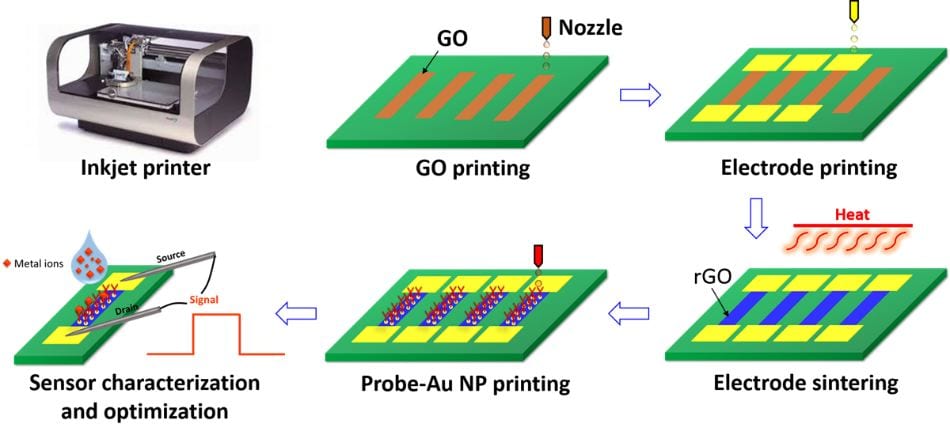Manufacturing electronic devices based on nanomaterials represents a nanotechnology grand challenge. Major issues associated with nanomanufacturing electronic devices include non-continuous manufacturing, device-to-device variation, relatively high cost, and relatively low yield. The electronics roadmap indicates that the market of printed electronics is estimated to exceed $300 billion over the next 20 years due to various advantages such as significantly lower costs. Printing technologies offer a solution for fabricating electronic circuits and devices while overcoming current challenges, and inkjet printing is a promising approach for fabricating low-cost electronics. Inkjet printing is a deposition technique used for liquid phase materials. These liquid materials, called inks, consist of a solute dissolved or materials dispersed in a solvent. Inkjet printing technology is based on digitally controlled generation and ejection of liquid ink drops from a printhead nozzle onto a substrate, which enables automated control and patterning. In particular, inkjet printing technology is well suited for manufacturing large-area electronics on flexible plastic substrates through a roll-to-roll process. Finally, inkjet printing technology is particularly compatible with various nanomaterials due to their small sizes and the ease of ink formation. We are addressing the current critical challenge of relatively high manufacturing cost of a novel, high-demand graphene-based water sensor by exploring a low-cost, customized inkjet printing process to reduce the sensor cost to pennies, which will significantly enhance the market acceptance of the new sensor product. The research entails engineering various inks and modifying the standard inkjet printing process to continuously produce the complete sensor system. Project results could be used for many other applications such as solar cells, lithium-ion batteries, and supercapacitors, enabling low-cost manufacturing of a wide range of printable electronic devices.
Theme 4
Scalable Nanomanufacturing of Electronic Devices and Systems through Inkjet Printing
